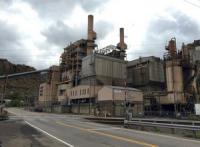-
Populism, terrorism converge to compound global risks
Aon publishes 2017 Risk Maps for Political Risk, Terrorism and Political Violence shows there has been a 14 percent increase in the number of terrorist attacks worldwide in 2016, up to 4,151 from 3,633 in 2015. Western countries saw a 174 percent increase in terrorist attacks in 2016, up from 35 attacks in 2015 to 96 attacks in 2016. Oil and gas companies were the target of 41 percent of terrorist attacks on commercial interests in 2016 and the trend has continued in 2017. But 2017 marks the first year in the last four where as many countries experienced a decline in political risk for investors as those experiencing an increase. This suggests a modest improvement in economic resilience after many years of deterioration. The potential for divergence between the United States and Europe around sanctions regimes could create uncertainty for investors in Iran, Russia, and even Cuba.
-
-
BP oil spill did $17.2 billion in damage to natural resources

The 2010 BP Deepwater Horizon oil spill did $17.2 billion in damage to the natural resources in the Gulf of Mexico, a team of scientists recently found after a six-year study of the impact of the largest oil spill in U.S. history. This is the first comprehensive appraisal of the financial value of the natural resources damaged by the 134-million-gallon spill.
-
-
Clean power planning

With a single executive order issued at the end of March, the Trump administration launched a robust effort to roll back Obama-era climate policies designed to reduce U.S. carbon dioxide (CO2) emissions. Chief among those policies is the Clean Power Plan, which targets coal and natural gas-fired electric power plants that account for about 40 percent of the nation’s CO2 emissions. Private and public-sector investors may see the executive order as a green light to double down on relatively cheap fossil fuels and reduce holdings in more costly, climate-friendly, non-carbon generation technologies such as wind, solar and nuclear. But they may want to think twice before making such transactions – and a new study details why it’s prudent to invest in carbon-free electricity now.
-
-
U.S. considering major changes to Visa Waiver program

Secretary of Homeland Security John Kelly said the Trump administration is considering making changes to the Visa Waiver Program (VWP), making it harder for Europeans travelling to the United States. Kelly said the existing rules, which do not require citizens of thirty-eight countries to get a visa for a trip of less than three months to the United States, should be re-evaluated in light of concerns about terrorism. “We have to start looking very hard at that [visa waiver] program,” he said.
-
-
How will the federal government protect nuclear safety in an anti-regulatory climate?

The Trump administration and congressional Republicans have undertaken a wide-ranging effort to shrink the federal government’s regulatory footprint. Much attention has focused on high-profile targets, such as the Environmental Protection Agency. But this trend also has major implications for other agencies. One example is the U.S. Nuclear Regulatory Commission (NRC), which oversees safety across a complex, privately owned network of nuclear power plants, used fuel storage facilities and other sites related to civilian uses of nuclear energy. The NRC and the system it regulates exemplify what some scholars call a “high reliability organization” – one that cannot be allowed to fail, because the consequences would be grave (two examples of failures of external oversight: Chernobyl in 1986 and Fukushima in 2011). A high reliability organization is not automatically a highly reliable organization. Reliability is an ongoing accomplishment involving continuous learning, sustained vigilance and a strong system of checks and balances. Moving forward in an anti-regulatory climate, with so many complex challenges facing the agency, it is essential to ensure independent leadership, public transparency and adequate resources to support the NRC’s mission.
-
-
U.S. companies performed 18 percent of R&D outside the United States
U.S. companies spent $73 billion on research and development (R&D) performed outside the United States in 2013, according to a new report by the National Science Foundation’s National Center for Science and Engineering Statistics. The total represented 18 percent of U.S. companies’ total R&D performance. These same companies spent $323 billion on R&D performed within the United States in 2013. Four industries accounted for 52 percent of foreign R&D performance by U.S. companies.
-
-
Sustainability’s threat to fossil fuel industry is only going to increase
Commercial activity in fossil fuels is increasingly at odds with global actions to reduce the threat of climate change. Burning coal, oil, and natural gas is responsible for two-thirds of humanity’s emissions of greenhouse gases, and yet provides more than 20 percent of GDP in two dozen nation states. By Citicorp’s estimate, current commitments to reduce these emissions could mean forgoing $100 trillion in fossil fuel revenues by 2050 — representing a huge disruption to global affairs, undermining national budgets and corporate balance sheets while exposing stakeholders, including pension holders and ordinary citizens in resource-exporting states, to myriad risks.
-
-
Developing data-driven solutions for faster, more secure border
Unisys Corporation and CSIRO’s Data61 today announced a collaboration to develop an advanced data analytics solution for automated security risk assessment of travelers and cargo at air, land and sea borders. Under the collaboration, Unisys will fund joint research with Data61 to develop an advanced data analytics solution capable of detecting potential border security risks posed by travelers, visa applicants, cargo and parcels.
-
-
Harsh U.S. weather in March expected to cost insurers more than $2 billion
An extremely active period for severe weather persisted in the United States throughout March, as four separate significant outbreaks led to extensive damage in central and eastern parts of the country. The most prolific outbreak from 6 to 10 March resulted in major damage from tornadoes, large hail, and straight-line winds in the Plains, Midwest, and Southeast. Total economic losses for this event alone were estimated at $1.7 billion, while public and private insurance claims were listed at $1.2 billion. The aggregated cost to the insurance industry from the four events was expected to exceed $2.0 billion.
-
-
Urgent action needed to bolster cybersecurity for critical infrastructure
There has never been a more crucial time to examine cybersecurity for critical infrastructure, most of which is privately owned. According to MIT experts, over the last twenty-five years, presidents from both parties have paid lip service to the topic while doing little about it, leading to a series of short-term fixes they liken to a losing game of “Whac-a-Mole.” This scattershot approach, they say, endangers national security. A new report warns of hacking risk to electric grid, oil pipelines, and other critical infrastructure. “The nation will require a coordinated, multi-year effort to address deep strategic weaknesses in the architecture of critical systems, in how those systems are operated, and in the devices that connect to them,” the authors write. “But we must begin now. Our goal is action, both immediate and long-term.”
-
-
Android apps can conspire to mine information from your smartphone

Mobile phones have increasingly become the repository for the details that drive our everyday lives. But researchers have recently discovered that the same apps we regularly use on our phones to organize lunch dates, make convenient online purchases, and communicate the most intimate details of our existence have secretly been colluding to mine our information.
-
-
Google’s AI tool for video searching can be easily deceived
Researchers have shown that Google’s new tool that uses machine learning to automatically analyze and label video content can be deceived by inserting a photograph periodically and at a very low rate into videos. After they inserted an image of a car into a video about animals, for instance, the system returned results suggesting the video was about an Audi.
-
-
Rising flood insurance costs a growing burden to communities, NYC homeowners
Flood insurance is already difficult to afford for many homeowners in New York City, and the situation will only worsen as flood maps are revised to reflect current risk and if the federal government continues to move toward risk-based rates, according to a new study.of-its-kind study by the RAND Corporation.
-
-
House kills web privacy protections; ISPs free to collect, sell customers’ information

The House of Representative on Tuesday voted 215 to 205 kill the privacy rules, formulated by the FCC, which were aimed at preventing internet service providers (ISPs) from selling their customers’ web browsing histories and app usage to advertisers. Without these protections, Comcast, Verizon, AT&T, and other ISPs will have complete freedom to collect information about their customers’ browsing and app-usage behavior, then sell this information to advertisers.
-
-
Repealing FCC’s privacy rules: A serious blow to privacy, cybersecurity
In the end, the cybersecurity implications of repealing the FCC’s privacy rules come from simple logic. If the privacy rules are repealed, Internet providers will resume and accelerate these dangerous practices with the aim of monetizing their customers’ browsing history and app usage. But in order to do that, Internet providers will need to record and store even more sensitive data on their customers, which will become a target for hackers. Internet providers will also be incentivized to break their customers’ security, so they can see all the valuable encrypted data their customers send. And when Internet providers break their customers’ security, you can be sure malicious hackers will be right on their heels. The net result is simple: repealing the FCC’s privacy rules won’t just be a disaster for Americans’ privacy. It will be a disaster for America’s cybersecurity, too.
-
More headlines
The long view
Are We Ready for a ‘DeepSeek for Bioweapons’?
Anthropic’s Claude 4 is a warning sign: AI that can help build bioweapons is coming, and could be widely available soon. Steven Adler writes that we need to be prepared for the consequences: “like a freely downloadable ‘DeepSeek for bioweapons,’ available across the internet, loadable to the computer of any amateur scientist who wishes to cause mass harm. With Anthropic’s Claude Opus 4 having finally triggered this level of safety risk, the clock is now ticking.”
A Brief History of Federal Funding for Basic Science
Biomedical science in the United States is at a crossroads. For 75 years, the federal government has partnered with academic institutions, fueling discoveries that have transformed medicine and saved lives. Recent moves by the Trump administration — including funding cuts and proposed changes to how research support is allocated — now threaten this legacy.
Bookshelf: Preserving the U.S. Technological Republic
The United States since its founding has always been a technological republic, one whose place in the world has been made possible and advanced by its capacity for innovation. But our present advantage cannot be taken for granted.
Critical Minerals Don’t Belong in Landfills – Microwave Tech Offers a Cleaner Way to Reclaim Them from E-waste
E-waste recycling focuses on retrieving steel, copper, aluminum, but ignores tiny specks of critical materials. Once technology becomes available to recover these tiny but valuable specks of critical materials quickly and affordably, the U.S. can transform domestic recycling and take a big step toward solving its shortage of critical materials.
Microbes That Extract Rare Earth Elements Also Can Capture Carbon
A small but mighty microbe can safely extract the rare earth and other critical elements for building everything from satellites to solar panels – and it has another superpower: capturing carbon dioxide.
